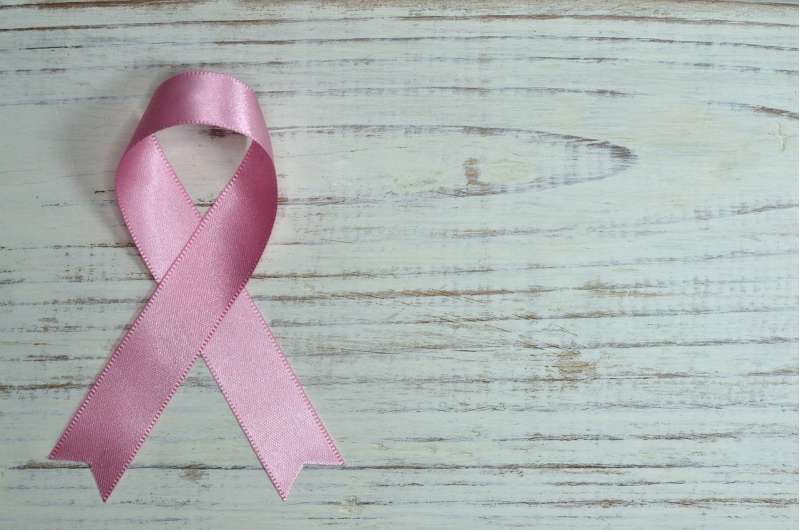Credit: CC0 Public Domain
We asked some of Roswell Park's doctors who specialize in cancers that affect women to share some tips for preventing or treating cancer. Here's what they offered.
Breast Cancer
Breast cancer is the most frequently diagnosed cancer in women. Most women who are diagnosed with breast cancer do not actually have a family history of breast cancer. "Since 1990, the death rate from breast cancer has decreased," says Ermelinda Bonaccio, MD, Clinical Chief, Breast Imaging Section of Diagnostic Radiology at Roswell Park. "This has been due to both early detection and improved treatments," she adds. According to Bonaccio, mammography is currently the only test that has been proven to decrease the risk of dying from breast cancer. "It is crucial for woman 40 years and older to get a mammogram every year," she offers. "A woman with certain risk factors may need to start at a younger age, but only after consultation with her physician."
Colorectal Cancer
Steven Hochwald, MD, FACS, Vice Chair and Chief of Gastrointestinal Surgery at Roswell Park, treats men and women facing colorectal cancer each day at Roswell Park. He says that eating a high-fat diet (especially from animal sources), being overweight, smoking and being inactive are the biggest risk factors. "Colorectal cancer is one of the few cancers where we have fairly accurate ways to see early signs," said Dr. Hochwald. "If pre-cancerous polyps are found and removed, we can prevent it. But why wait for polyps? Increase your intake of fruits and vegetables and stop polyps before they can start."
Endometrial Cancer
Endometrial cancer, or cancer of the lining of the uterus, occurs mostly in women age 50 and older. Stacey Akers, MD, of Roswell Park's Department of Gynecologic Oncology, advises women that while the Pap test is used for screening for cancer of the cervix, it is not a test for to screen for endometrial cancer. "Watch for signs like unusual spotting or bleeding not related to menstrual periods and bleeding after menopause, and if this happens, tell your doctor immediately," she cautions.
Lung Cancer
Martin Mahoney, MD, Ph.D., a leader in Roswell Park's Lung Cancer Early Detection Program and an expert in smoking cessation, says that although lung cancer kills more men and women than any other cancer, it is also often preventable. "Smoking is an extremely difficult addiction to quit, but quitting is the most important health behavior change that a person can make," said Mahoney. "The best advice is never to start, but if you smoke, get help from your clinician or the New York State Smoker's Quitline. If you have loved ones or friends still smoking, keep encouraging them to quit."
Ovarian Cancer
Ovarian cancer has often been called the silent killer because its symptoms often go unrecognized or are attributed to something else. But according to Peter Frederick, MD, Associate Professor of Oncology at Roswell Park, there are ways women can increase their chances of having the disease diagnosed earlier. "We hope one day that we will have an effective screening test for ovarian cancer, but until then, women must pay close attention to the signals their body gives them. Persistent symptoms (more than 12 days in a 30-day period) such as pelvic or abdominal pain, bloating, loss of appetite, or changes in bowel or urination habits are warning signs that should be reported as soon as possible."
Provided by Roswell Park Cancer Institute
























